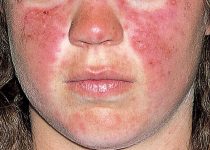Lupus and Night Sweats: Causes, Symptoms, and Effective Management
Lupus, scientifically known as Systemic Lupus Erythematosus (SLE), is a complex autoimmune disease that can manifest with a diverse range of symptoms. Among these, night sweats are a recurring concern for individuals with lupus. In this comprehensive guide, we will explore the connection between lupus and night sweats, the underlying factors contributing to this symptom, and effective strategies for managing it.
Understanding Lupus:
- Lupus: Systemic Lupus Erythematosus (SLE) is an autoimmune disease where the immune system mistakenly attacks healthy tissues and organs, leading to inflammation and a myriad of symptoms that affect various body systems.
- Inflammation in Lupus: Lupus-induced inflammation plays a central role in the disease, causing tissue damage and a wide range of health issues.
Night Sweats & Lupus: Night sweats, characterized by excessive sweating during sleep, are frequently reported by individuals with lupus. Understanding the correlation between lupus and night sweats involves examining the following factors:
- Fever and Night Sweats: Lupus often triggers fever as part of its inflammatory response. Night sweats can result from elevated body temperature as the body attempts to cool down.
- Inflammation’s Role: Lupus-related inflammation can disrupt the body’s temperature regulation, leading to fluctuations that may result in night sweats.
- Medications and Night Sweats: Some medications used to manage lupus symptoms can have night sweats as a side effect, further complicating the issue.
- Infection Susceptibility: Lupus can weaken the immune system, rendering individuals more susceptible to infections. These infections can cause night sweats as the body fights off invading pathogens.
Effective Night Sweats Management in Lupus
Managing night sweats in lupus is essential for improving the quality of life and addressing the underlying causes. Here’s how you can effectively manage night sweats:
- Consulting a Healthcare Provider: If you’re experiencing persistent night sweats with lupus, it’s crucial to consult your healthcare provider. They can conduct a thorough evaluation and tailor your treatment plan to address the underlying causes.
- Medication Assessment: Review your lupus medications with your healthcare provider. Identify medications that might contribute to night sweats and explore potential alternatives.
- Infection Prevention: Given the weakened immune system in lupus, it’s important to practice diligent hygiene, stay up to date on vaccinations, and avoid contact with individuals who have infections to prevent night sweats caused by infections.
- Temperature Control: Create a comfortable sleeping environment by using breathable, moisture-wicking bedding and sleepwear. Maintaining a moderate bedroom temperature can help prevent overheating.
- Stress Management: Stress can exacerbate lupus symptoms, including night sweats. Incorporate stress-reduction techniques such as meditation, yoga, or deep breathing exercises to effectively manage these symptoms.
Night sweats are a common and perplexing symptom for individuals living with lupus. A thorough understanding of the potential triggers and the implementation of appropriate strategies can significantly enhance the quality of life for those managing this autoimmune disease.
If you experience night sweats or any unusual lupus-related symptoms, it’s essential to consult your healthcare provider for a personalized evaluation and a comprehensive treatment plan. By addressing the root causes, you can better manage night sweats and improve your overall well-being while living with lupus.

